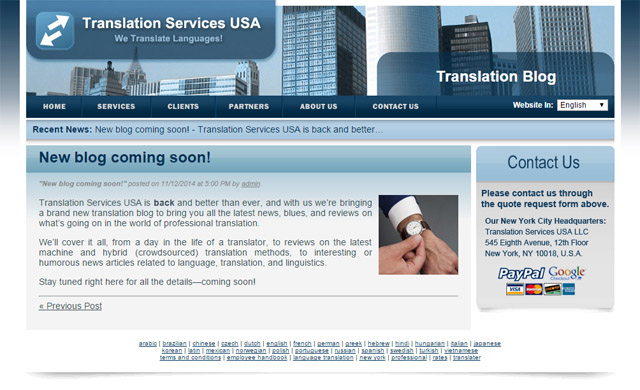An Important Ruling on Translating and Interpreting for the Courts

Currently, federal regulations state that those on the losing side of a lawsuit may be required to compensate the winning side for payment of court interpreters. Now however, the question the Supreme Court has to currently decide is whether or not these prices include those pertaining to lawful record translation as well as written translation as a whole.
Our take on the matter: when translating for court cases, we typically make a clear distinction between interpreting, which involves an immediate, oral translation of spoken text, and translation, which includes not only document translation but also translating various other written documents.
However, industries and the judicial system don’t necessarily see eye to eye when it comes to standards such as these, and the SCOTUS could easily determine against these distinctions in favor of a more comprehensive interpretation of analysis that includes written translation too.
The Supreme Court’s decision on awarding translation fees to the winning party will certainly be made public in the near future, and we’ll be sure to keep you updated on that front when it’s made public.




